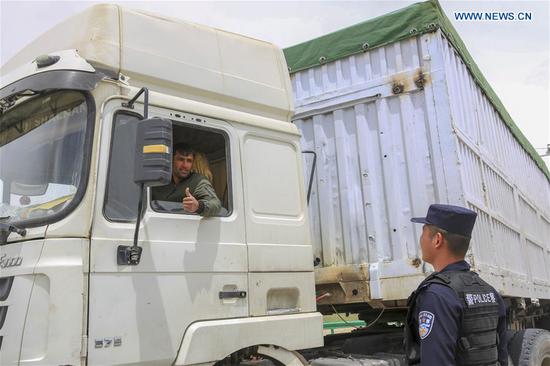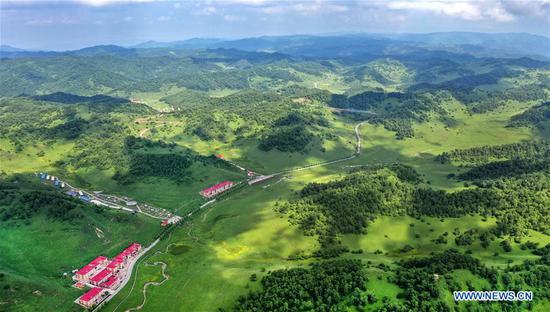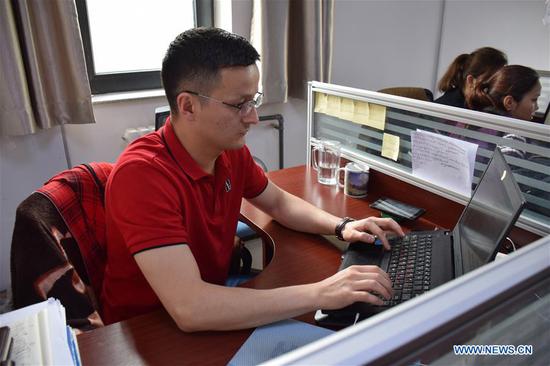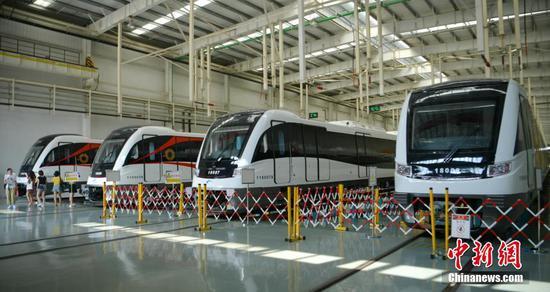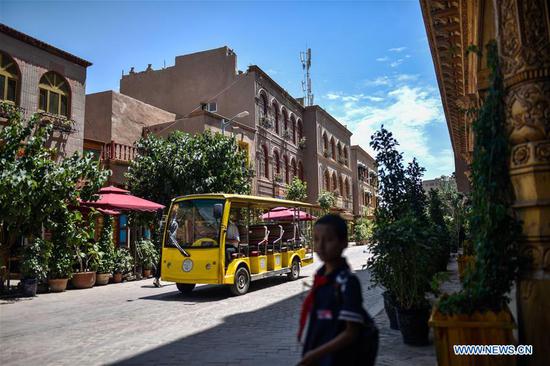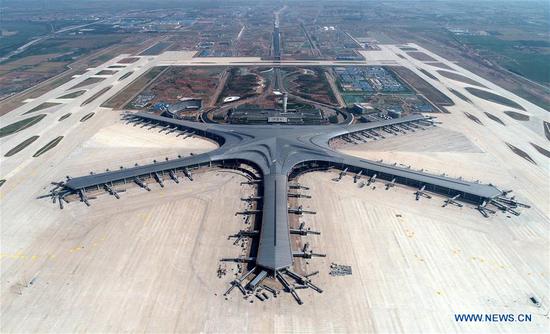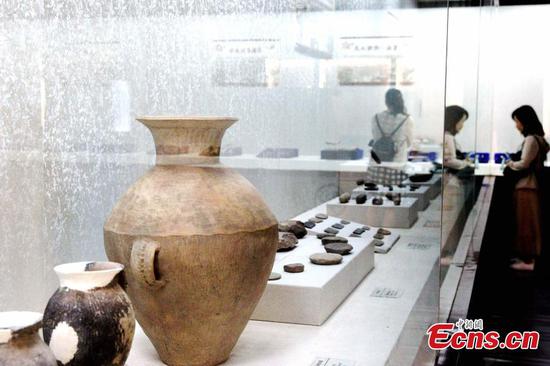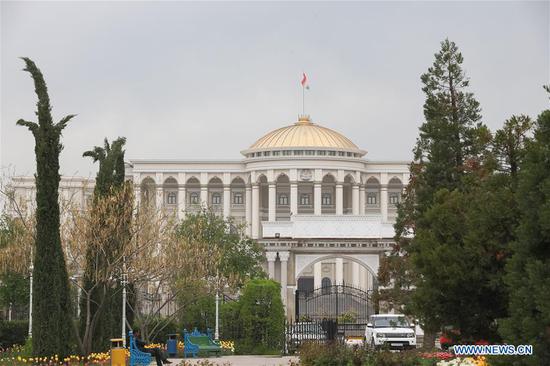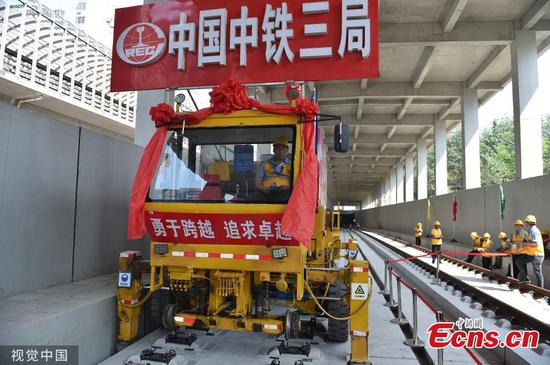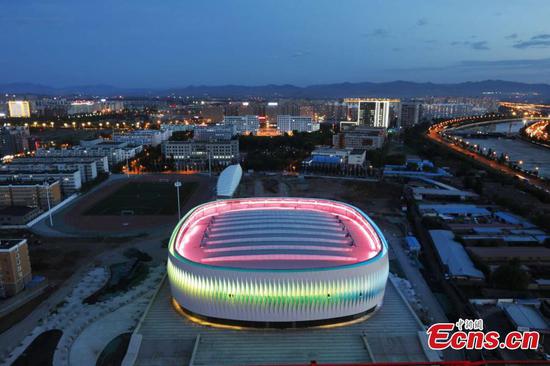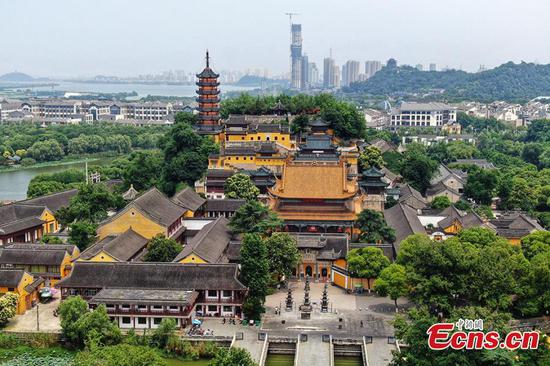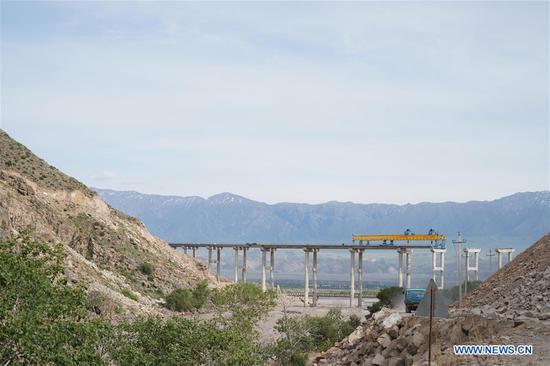
Nyima Tsering, general manager of Zhentong Logistics Co. (Photo provided to China Daily)
More opportunities
With the station and its surrounding area becoming a logistics hub, Nyima Tsering sees an opportunity to open a hotel and restaurant to serve passing truck drivers. Many villagers choose to work for the company and the station as drivers, loader or cleaners, rather than travel far away to find jobs.
"Now, our villagers have more Mercedes Benz cars than the total number of vehicles we used to have. Some people have even bought vacation homes in Chengdu (Sichuan's capital)," Nyima Tsering said.
In the near future, more rail lines in Tibet will be connected to the rest of China, which will further accelerate the integration of the regional economy and culture with the rest of the country.
For example, construction will soon start on the 1,900-km Sichuan-Tibet Railway, which will link with the Lhasa-Nyingchi Railway upon completion. It has already attracted investment of about 200 billion yuan. Construction of the Yunnan-Tibet and Xinjiang-Tibet railways is also planned.
Gyara Gyatso said he has made two important decisions in his life so far: joining the PLA when he was 16; and coming back and hosting guests after the railway opened.
"The first helped me to understand the outside world, and the latter helps the world to better know Tibet," he said. "When we have more railroads to further vitalize the once-isolated plateau, I will feel that my decisions were even more correct."










